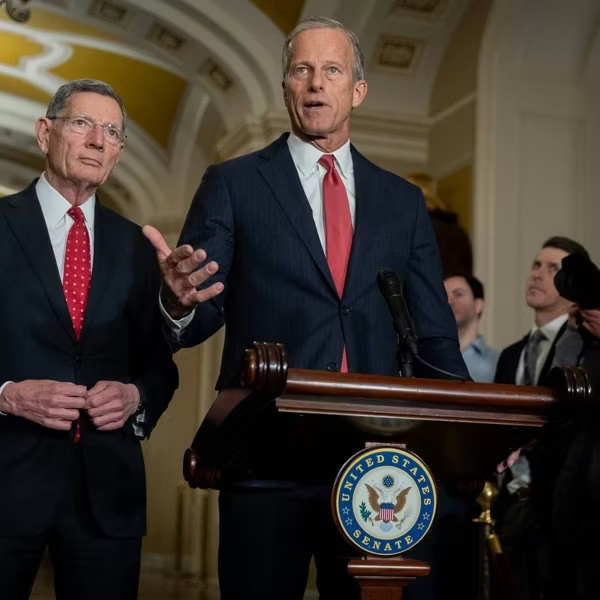Not a word about the 25 million still jobless. Nothing about how to help the more than 7 million homeowners who have, or the additional 4 million who will soon, face foreclosures and evictions. Absolute silence about the dozens of states and hundreds of local governments in deepening fiscal crisis and approaching bankruptcy-and the hundreds of thousands of public employees who will pay for that bankruptcy with their jobs, wages, pensions, and health benefits. OK, some vague references to infrastructure and alternative energy jobs-over the next 25 years. Paid for by Obam's explicit reference to cut Medicare and Medicaid benefits for tens of millions.
But the most disturbing element of Obama's State of the Union address last Tuesday night was his firm commitment to cut corporate taxes even further, and thereafter to move on to 'simplify' the US tax code in general-i.e. a code word in policy circles for further reducing top tax brackets which always results in tax cuts for the wealthiest households.
What Obama proposed in his address on Tuesday was a classic continuation of a supply side, ideological program focusing on business tax reduction, supplemented by various other measures to reduce business costs at the expense of consumers, workers, and others.
But the problem today is not excessively high business costs. It's not a supply side problem. Business has been cutting costs to the bone the past three years with massive layoffs, wage reductions, employee benefit cuts, hiring part time and temp workers, and implementing various productivity boosting measures. Obama and Congress have further lavished tax cuts and subsidies on business at historic levels the past two years. The Federal Reserve in turn has reduced business costs still further by reducing interest rates to record low levels. The result of all this business cost reduction has been a rapid return to pre-crisis levels of business profits and an accumulated corporate cash hoard of more than $2 trillion. And none of this $2 trillion has been spent by business thus far to create jobs to any reasonable extent.
In his address Obama praised the fact that business created 1 million jobs in 2010. But the majority of the 1 million were temp and part time jobs. And at that 1 million a year rate of job creation it will take 15 years just to recover the jobs lost in the recent recession. Yet Obama maintains Business needs further cost reduction assistance, and still more business tax cuts to 'make them more competitive'.
The problem in the US economy, now experiencing the most lopsided (and weakest) economic 'recovery' from any recession since 1947, is not too high business costs or insufficient supply side (business tax) stimulus. The problem is demand side-i.e. not enough income for the 90 million middle and working class households. That insufficient income means first and foremost not enough jobs. And Obama last Tuesday night said nothing of substance about how to create jobs today or even in the next one to two years. Job creation was relegated to the distant future, stretched out over the next 25 years.
The US economy and households do not need a 25 year job creation plan. They need an immediate job creation program. And they need a definitive solution to prevent 10 million foreclosures. And the better get quickly a rescue of the states and cities, before the local government crisis sinks the municipal bond markets and subsequently precipitates another 'subprime'-like financial implosion. Yet no mention of any of this in the State of the Union address, as if these weren't the most serious issues confronting the US economy today.
In his Tuesday address Obama clearly followed in the footsteps of George W. Bush. Bush first passed more than $3 trillion in tax cuts for wealthy households between 2001-2003 by cutting capital gains, dividends, and estate taxes. (Obama last December extended the same for two more years). Bush then followed up in 2004 with several industry-by-industry specific corporate tax cuts worth another $1 trillion. (Obama now follows up with proposals to cut the corporate tax rate). Bush in 2005 then proposed to revise the general tax code in his second term to make it all permanent. Obama and the Republican Congress will pass the additional corporate tax cuts this year, then move on to the general tax code revision in 2012 that will 'simplify' (lower) taxes on the wealthiest households before the next general elections.
On Tuesday Obama thus echoed the tired corporate refrain that 'tax cuts create jobs'. His new twist is that the tax cuts are necessary to 'make US corporations more globally competitive' vis-a-vis their foreign rivals. In other words, the primary focus of the tax cuts is to benefit US multinational corporations. As the argument goes, if they are 'more competitive' (i.e. if their costs are less), they will be able to get a larger share of global exports and sales, which will mean more investment and jobs in the U.S.
But for more than a decade now multinational corporations as a group have been steadily reducing jobs in the U.S., and will continue to do so. Obama's corporate tax cuts will result in fewer-not more-jobs in the U.S., as corporations use the additional income to continue to invest in new equipment that will result in job displacement rather than new job creation.
More tax cuts for multinationals could also prove to have only a temporary effect at best at boosting exports and profits, and thus investment and jobs. The present period is one in which all the major global economic sectors-the U.S., the Eurozone, China, Japan, the Asian periphery, and BRICs like India and Brazil, are all intensifying their fight over the remaining global export pie.
Their respective, domestic economies have all been experiencing difficulty generating sustained internal economic recovery-except for China which has recently begun to slow its economy on purpose to deal with rising global speculation and internal inflation.
Japan has entered a double-dip recession. Asian periphery economies are rapidly slowing and some predicted to enter recession again. Like China, India and Brazil are slowing their economies intentionally as well, Growth in the Eurozone will slow, driven by its periphery nations' financial instability. Global competition over exports is growing more intense. More currency fights are erupting. More protectionism is likely. And all over a global export pie that will to grow more slowly in 2011 and perhaps more so in 2012.
The newly emerging Obama-Big Business focus on relying on exports and multinational corporations to lift the US recovery to a sustained path is therefore a highly risky policy shift. It will not only fail to create jobs; it will likely fail as well to provide the main source for a sustained economic recovery that has eluded Obama to date. For all who are not bankers, investors, or corporate managers and big stockholders or bond traders-we can expect more of the same for the next two years in a continuing lop-sided economic recovery.



